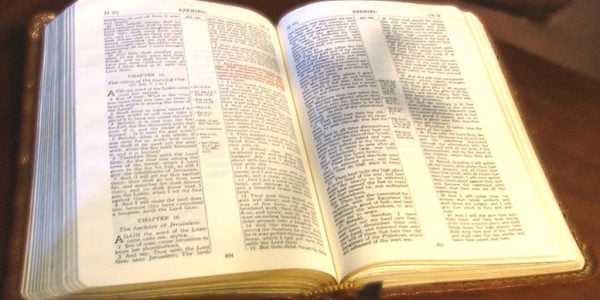
I just got back from the Wild Goose Festival. It’s a great experience every year, but it’s also a time in which I feel strangely conservative because of my relative location on the spectrum of Christian belief. I live my life in the intersection of two orthodoxies: progressive intersectional social justice and evangelical Christianity. Basically, I remain a evangelical who seeks a gospel that is decolonized and purged of the distorting idols of nationalism, capitalism, white supremacy, and gender normativity (with the desperate hope that there’s still something left after those idols have been removed).
What that means is that some progressive Christianity is outside of where I’m willing to go. I thought it might be helpful to share some ways I’m not entirely progressive not as a judgment on those who find themselves in different places, but in order to create space for others who are similarly ambivalent about where they land. It may be that some or most of this reflects my straight white male privilege. That’s fine. I have to be authentic to my journey in case it provides solid ground for others who are on similar journeys.
1. I believe in orthodoxy
At Wild Goose, I did an interview for my podcast with Diana Butler Bass and Brian McLaren, two of the most prominent progressive Christian thinkers who wrote the two blurbs on the back of my first book and have deeply influenced my life even though I don’t agree with them on everything. One of the questions I asked was whether they thought there was a healthy version of orthodoxy. Neither of them felt that the concept of orthodoxy was helpful in general. I myself think that orthodoxy is tremendously important, not because I believe in building walls and shutting people out, but because I believe that the Christian gospel has a tremendous power to inspire and transform people that it loses when we start throwing out essential parts of the story.
In my book, I wrote that orthodoxy is like a good blues jam where the musicians are so in sync that the song starts playing them. The point of orthodoxy is being able to see and taste the glory of God most poignantly. In the Bible, the word doxa means glory, so orthodoxy should mean “the best grasp of God’s glory” rather than “the correct opinion on litmus test issues.” That’s what happens in a blues song when you really get in the groove. You get absorbed into the glory of the song. But if someone came to a blues jam and started playing classical piano arpeggios instead of the pentatonic blues scale, it would be a disaster. So you have to have some boundaries or it doesn’t work.
Playing the blues requires two things that are required of Christian orthodoxy: mastering the fundamentals and having the courage to improvise. There have to be some fundamentals or else we have no common story to build a community around. At the same time, the song requires improvisation and mystery for it to reveal God’s glory. Those who turn God’s song into their thoroughly colonized, exhaustively explicated doctrine have sucked the glory all out of it. If your doctrine is actually God-breathed, there has to be space inside of it for God to breathe. When true orthodoxy happens, the result is glorious. I believe in orthodoxy because I believe God’s song is beautiful and I want it to sound beautiful when I play it.
The reason my blood boils when people try to shoehorn “orthodoxy” into sexuality debates is because of my reverence for orthodoxy. While having a healthy sexuality can make a big difference in our ability to experience God’s glory, the crude, oversimplified moral legalism of the sexuality debate profoundly blasphemes God’s beauty and does not qualify as a first order issue for orthodoxy.
2. I cannot authentically perform non-Christian spiritual practices
One of my dear friends calls himself a Christian shaman. Last year at Wild Goose, he created a ritual space that he called a white stone ceremony, in accordance with Revelation 2:17 which says that God will “give us white stone with a new name known only to us.” At this ceremony, the Holy Spirit told me that I am not a hero but a healer. It was a powerful enough moment that I considered it my seventh salvation because I was released from my need to be a hero who writes a book that saves the world, a toxic burden that comprised much of my self-definition for most of a decade. For me, it mattered a lot that what we were doing had its roots in scripture. I used the same ritual as the culmination of our student fall retreat last October.
This year’s ritual didn’t work for me. We were given colored powder to sprinkle on other people as a blessing, which is a custom of the Hindu tradition. Though I don’t want to disparage anyone for whom this experience was meaningful, it felt appropriative for me to dabble in another religious tradition’s rituals. When I bless people, I want to be able to say something that comes from God, but in this case, I had no words to use because I’m not Hindu and I didn’t want to speak flippantly. So the experience was pretty uncomfortable for me. I have similar reservations about doing the mantras in yoga. It seems touristic for me to do these things as a white Christian man. This is not a judgment on anyone who has a different understanding of what they’re doing by borrowing from other faiths. While I have been influenced by the Buddhist writings of Thich Nhat Hahn, I can only connect with God authentically through spiritual practices rooted in Christian scripture and tradition.
3. I believe in disciplining my desire
I have fasted on Mondays and Fridays for several years. When I actually have the discipline to give God my attention on those days, I can have a very rich and fulfilling taste of the kingdom. Too often, I am just a hungry basketcase on those days because I’m trying to make them regular workdays. Though my fasting has not helped with my self-control as much as I had initially hoped it would, it has taught me that disciplined desire produces more joy than haphazardly chasing every fleeting fleshly appetite. To say it differently, holiness is the way to happiness.
Many progressive Christians have a reactionary disdain for holiness because of the way the concept has been abused by the anti-gay movement. To me, holiness is the foundation for justice, because unless my egocentrism is disciplined, I’m going to be toxic to other people no matter what noble causes I “like” on Facebook. So what all this means is that I’m ambivalent about people defining themselves too much according to their raw desires. To desire the kingdom of God is an acquired taste that follows years of spiritual practice, but it’s infinitely more meaningful than getting drunk and having sex with a stranger.
That’s why I’m unwilling to say that anything goes sexually as long as it’s consensual. I can do things with my body and heart that enhance my experience of God’s kingdom or I can do things that diminish it. Sex can be a powerful source of divine encounter, and I believe that its best possible version occurs in the context of a covenanted relationship. So for me, holiness is not a legalistic burden, but an ascetic tool for gaining mystical union with Christ. And I wish other progressive Christians could recognize the powerful mystical potential of disciplining their desire.
4. I use the traditional names of the Trinity
I understand the rationale of those who want to use gender-inclusive language for God. I don’t think God is male and I don’t mind calling God “she” in certain contexts. Often I specifically gender the Holy Spirit as she. But when I’m naming the Trinity, I say the Father, the Son, and the Holy Spirit. I’m not willing to invent new names for them even though I agree with all the concerns others have about patriarchal language.
Sometimes I’m willing to break with tradition, but the name of God is a very serious matter to me. I say the Lord’s Prayer more than a dozen times each day and I will always open it by saying “Our Father.” I realize this is indefensible from the perspective of progressive orthodoxy, but this is a place where I cannot let go of Christian tradition and I don’t really have a better justification for it.
5. I believe in worshiping Jesus as my king
One thing that has really puzzled me in recent years is hearing progressive Christian pastors saying that we’re supposed to follow Jesus instead of worshiping him. I just don’t understand what that even means. I’ve never been a fan of the highly emotive “Jesus is my boyfriend” praise songs, except for my amusement at the homoeroticism of male evangelical Christian worship leaders. At the same time, I can’t understand why any Christian would problematize worshiping Jesus. It seems like it’s informed by the false binary between serving the world and praising God.
I went to a progressive Christian music workshop at Wild Goose and the songs that were given as examples seemed to be more about making a statement about the community than worshiping God, with lines like “Everyone belongs here.” While singing a song about inclusivity certainly has a legitimate formational purpose in a Christian community, it’s basically secular (which isn’t necessarily a bad thing but I don’t think it should be the entirety of what we’re singing in worship). To me, worship is a critically important foundation for everything I do as a Christian. Jesus doesn’t need my flattery, but I need to direct my attention to Jesus’ beauty along with the Father and the Spirit in order to decenter myself.
It’s because of my worship that I am equipped for doing justice in the world. This is not because I sing lyrics about all the different ways I’m supposed to do justice (which can just as easily become a substitute for actually doing it). It’s because orienting my desire towards God liberates me from the idols that keep me selfish. My goal in worship is to see the kingdom of God so I can be part of how God brings the kingdom to Earth. You’ll notice I said the word kingdom. Many progressive Christians have started using the word kindom instead. I understand the concern with patriarchal language, but I’m not going to give up on calling Jesus my king. It’s not just an egalitarian family; it’s an egalitarian family who share a common shepherd.
6. I believe in the power of Jesus’ blood
Some progressive Christians talk about the need for new metaphors about Christian salvation that don’t involve blood sacrifice. They consider Jesus’ cross to be a source of violent ideology. So they reject not just particular articulations of how Jesus’ cross saves people, but the concept of atonement altogether. They claim that the historical Jesus was a nonviolent revolutionary leader assassinated by the Roman Empire for his political insurrection.
I’m not willing to let go of the cross as the centerpiece of Christian theology. I can’t come up with any explanation of its necessity that doesn’t sound ridiculously barbaric to modern progressive sensibilities. I absolutely do not believe that God needs to make his son bleed in order to tolerate our sinfulness eternally. But I do believe that God’s wrath as it is manifested in the cumulative sublimated rage of human community needs to be quenched and absorbed by God back into himself through the body of Jesus on his cross in order to create peace and reconciliation by delivering humanity from the impossibly entangled web of hurt and shame we call sin.
I continue to believe that the blood of Jesus is what is needed to deliver us from our increasingly acrimonious world. I go to a mixed race church where we sing gospel music a lot. One of the songs that echoes in my head is “The Blood Will Never Lose Its Power.” In this song, there is no semblance of the popularized understanding (caricature?) of penal substitution that progressive Christians chafe against. Here’s what the blood of Jesus does for the black church that wrote this song:
Oh it soothes my doubts
And calms my fears
And it dries all my tears
Oh the blood that gives me strength
From day to day
It will never lose its power
This song makes me think that black Christians understand something about the blood of Jesus that I cannot grasp as a white man. White theology makes Jesus’ blood into an abstract transaction whose exact formula we spend most of our time debating. In white evangelicalism, we are saved by our grasp of atonement theology, not the actual physical blood of Jesus. The authority in white evangelicalism belongs to the white man in the pulpit, not the blood of the brown man on the cross. So I would contend that what progressive Christians are chafing against is not actually the authority of the blood, but the authority of the white man who co-opted the blood.
If Jesus’ blood actually finally gained authority over the church instead of the moral sensibilities of its wealthiest donors, then Christianity would look completely different. Because the authority of Jesus’ blood looks more like the authority of a black man’s body that bleeds out in the street than the authority of the white men who control every church institution. What if Christians actually submitted ourselves to the judgment that cries out from the veins of the God we continue to crucify? What if we recognized the solidarity this blood shows to those who can honestly say that it dries all their tears and gives them strength since their people have bled like Jesus did? Imagine how many strongholds of Satan the blood of Jesus could pull down.
7. I self-identify as a redeemed sinner justified by Jesus
Some progressive Christians chafe against the concept of sin, because they’re used to “sin” being a code word for otherness. So they minimize the place for sin in their theology. For some, the only real sin is being judgmental (of a particular set of people). I’ve heard a lot of progressive Christian sermons about everyone being welcome and accepted in Jesus’ family, which I absolutely agree with. I just want to add an “and…” to the end of that.
Sin is a critically important part of our theology as Christians, because it names the real enemy. All of us are held captive in varying degrees by the tangled up mess of resentment, shame, and fear that humanity has accumulated. That’s what sin is. It’s not just breaking the rules. I am a sinner because I am innately shaped by the resentment, shame, and fear of my ancestors and I make choices that continue to contribute to this tangled up mess. Denying my status as a sinner is analogous to denying the privilege I carry as a cis straight white man.
Because I trust that Jesus has justified me, I experience my ownership of sinfulness not as self-hatred but as empowerment. The holiest moments I have experienced are moments of repentance in which God has revealed my sin to me. When my sin is revealed, I am set free from it. I am not ashamed. I simply repent and move forward. I don’t need to have an unblemished track record and spotless reputation because I’m not trying to justify myself.
To me, freedom from self-justification is the core of Christian salvation. I would hypothesize that every toxic ideology and idol of our time has its root in self-justification. And I would argue perhaps controversially that the way to make an entitled white person less toxic to black people is not to pound them over the head with harsh proclamations from critical race theory but to teach them how to renounce self-justification using the language of the Bible. Despite all the overwhelming evidence to the contrary, I still believe that Jesus can save the world from his people by delivering us from our self-justification.
If this theology resonates with you, you might appreciate my book How Jesus Saves the World From Us: 12 Antidotes to Toxic Christianity!
Our campus ministry is the only openly queer-affirming United Methodist college ministry in the state of Louisiana and one of less than half a dozen in the South. We have quadrupled in size over the last three years and experienced 2 professions of faith and 6 life rededications of ex-churched students. Right now, 57% of our monthly support from individual donors is coming from people whose only connection to our ministry is my blog. I’m overwhelmed with gratitude for your support. We literally would not exist without it. But somehow, I need to get us from $639/month to $2000/month. I will not be able to blog if my campus ministry goes under and I am reassigned to a church that will not be able to handle my blog. So if you’re blessed by what you receive here, please consider partnering with our ministry as a monthly patron.
















